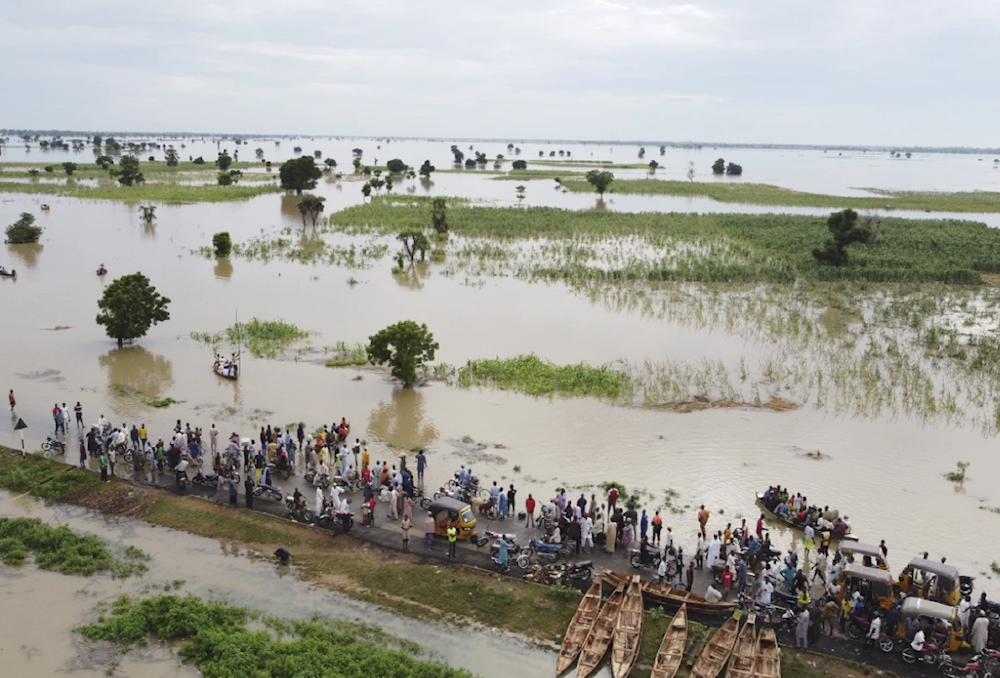Floods hit 10 states in Nigeria, threatening to worsen food crisis
According to Punch, the flooding ravaged Kaduna, Kano, Jigawa, Nasarawa, Taraba, Bauchi, Zamfara, Yobe, Sokoto, and Kebbi states which have previously experienced drought, followed by floods
-

People walk through floodwaters near flooded farmlands after heavy rainfall in Hadeja, Nigeria on September 19, 2022. (AP)
Floods caused by prolonged rains have destroyed agricultural land in eleven northern Nigerian states, threatening to exacerbate the country's food crisis, Nigeria's Punch daily said on Monday.
According to Punch, the flooding ravaged Kaduna, Kano, Jigawa, Nasarawa, Taraba, Bauchi, Zamfara, Yobe, Sokoto, and Kebbi states which have previously experienced drought, followed by floods.
According to agricultural experts quoted by the newspaper, Nigeria's food crisis might grow unless fast and decisive action is taken.
An anonymous State Emergency Management Agency (SEMA) official told the newspaper that the agency is aware of the present situation and is highly worried about it, but that it cannot take any action until it receives a detailed report on the issue.
The flood wiped away 2,744 hectares of farmlands. From August 1 to 13, 2024, the state had sporadic downpours, resulting in multiple floods, the deaths of 21 people, and the devastation of farmlands and buildings," Haruna Mairiga, a SEMA officer in Jigawa state, told Punch.
He also stated that the damage to farmers' crops in the state is about $630,000.
According to the United Nations, floods in Central and Western Africa during the rainy season killed over 70 people and wounded around 700 others. The floods had damaged almost 25,000 hectares of agricultural land.
Southern African drought affecting close to 68 million: SADC
An El Nino-induced drought has wiped out crops across Southern Africa, affecting around 68 million people, the Southern African Development Community (SADC) regional group announced on Saturday.
The drought, which began in early 2024, has hampered crop and livestock output, resulting in food shortages and harming the overall economy.
Addressing regional challenges such as food security, heads of state from the 16-nation SADC met in Zimbabwe's capital, Harare.
According to SADC executive secretary Elias Magosi, around 68 million people, or 17% of the region's population, require help.
Magosi said, "The 2024 rainy season has been a challenging one with most parts of the region experiencing negative effects of the El Nino phenomenon characterized by the late onset of rains."
The southern part of the continent is undergoing its most severe drought in years, caused by a mix of naturally occurring El Nino, which occurs when the eastern Pacific's waters warm abnormally, changing global weather patterns, and higher average temperatures caused by greenhouse gas emissions.
Zimbabwe, Zambia, and Malawi have already declared the hunger crisis a disaster, while Namibia and Lesotho have requested humanitarian assistance.

 3 Min Read
3 Min Read








